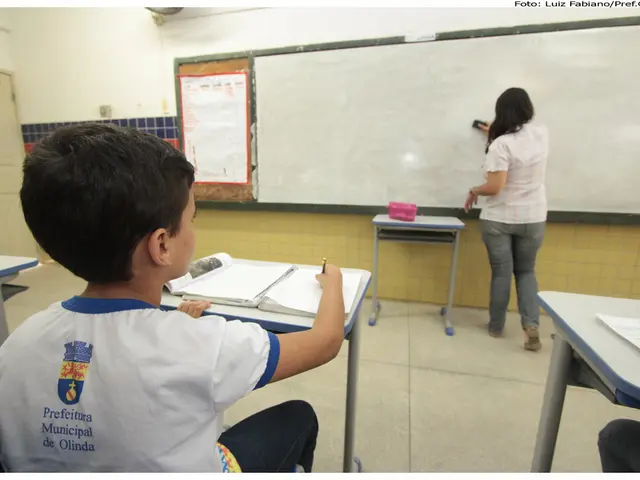Navigating Parental Religious Dilemmas in Nigeria: Overcoming Obstacles
In Nigeria, where approximately 99.4% of the population identifies with a major religion, faith plays a significant role in shaping parenting values and practices.
Religion often serves as a moral compass, guiding parents to instil virtues such as honesty, respect, and compassion in their children. It also encourages spiritual development, with many parents striving to nurture religious values and practices within their families. Moreover, religion is deeply intertwined with cultural identity in Nigeria, with parents seeking to preserve traditional practices and beliefs through their parenting style.
However, the influence of religion in Nigeria is not without its challenges. For instance, the dominance of religious beliefs can sometimes lead to stigma around mental health issues, causing parents to rely more on spiritual solutions than clinical ones. Balancing traditional religious values with modern societal expectations and educational influences can also be a challenge. Furthermore, interfaith conflicts can arise when parents follow different religions, particularly if one parent converts to a new faith.
To navigate these challenges, open communication within the family about religious and cultural values is crucial. Encouraging open dialogue ensures understanding and respect among family members. For interfaith families, finding common ground and respect for each other's beliefs can help in raising children who are tolerant and open-minded.
Another strategy is to integrate both religious and clinical approaches to address mental health issues, ensuring well-rounded care for children. Embracing diversity by encouraging children to explore and appreciate different religious and cultural practices can foster a more inclusive and accepting environment.
Engaging with religious and community leaders can provide additional support and resources for navigating parenting challenges. For instance, some Nigerian parents raise their children according to the guidelines set by their religious organisations, and these leaders can offer guidance and advice on how to do so effectively.
In conclusion, religion significantly shapes parenting values and practices in Nigeria. While it presents challenges, open communication, interfaith understanding, a holistic care approach, embracing diversity, and community support can help Nigerian parents navigate these challenges and foster a more accepting and inclusive society.
[1] Source: Pew Research Center, "Nigeria's Religious Landscape" (2014)
- Parents in Nigeria often use their religious beliefs as a foundation for teaching virtues like honesty, respect, and compassion to their kids, encouraging spiritual development and nurturing religious values in the family.
- Balancing traditional religious values with modern educational influences can be a challenge for parents in Nigeria, as interpreting these values in a contemporary context may require some adaptation.
- Open and honest dialogue within families is essential for fostering mutual understanding and respect, especially important in interfaith families raising kids who are tolerant and open-minded.
- Exploring a combination of religious and clinical approaches to address mental health issues can offer comprehensive care for children, ensuring they receive well-rounded support.
- Embracing diversity by allowing children to explore and appreciate various religious and cultural practices can lead to a more accepting and inclusive lifestyle.
- Seeking guidance from religious and community leaders can offer valuable resources and support for navigating the complexities of parenting in Nigeria.
- Engaging with education-and-self-development resources, such as articles from general news outlets like Pew Research Center, can provide additional insights into the intricacies of parenting in a diverse society, offering practical solutions for raising children in a way that fosters a more accepting and inclusive future.




